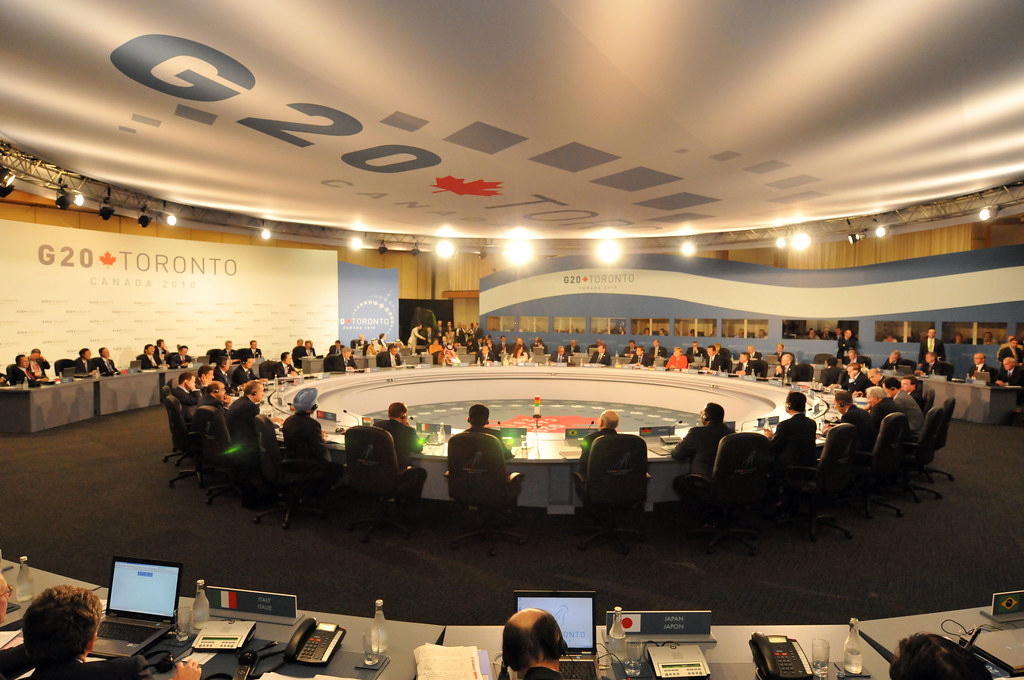It’s G-20 time again, and once again the attention of the leaders of the world’s biggest economies will be largely preoccupied with shoring up the financial sectors in countries that are home to the world’s top billion. This is unfortunate but under the circumstances not entirely unreasonable. Financial crises in the rich world can have far-reaching consequences for poor people in the developing world, including weak demand for developing-country exports, sagging tourism and remittances, and tighter credit, which among other things makes it harder to finance trade. Addressing the crisis in Greece, and Europe more broadly, is in everybody’s interest. Whether the G-20 can help to stabilize the global financial sector and get the world economy growing remains the most important question for development.Still, developing-country leaders, who doubtless remember the days when Washington and the international financial institutions chided them for mismanaging their economies, must be feeling a little impatient that so much of the world’s attention—not to mention capital—is being sucked into dealing with chronic mismanagement and low-growth in the United States and Europe. Will the Multi-Year Action Plan for Development, adopted at last year’s Seoul Summit, continue to be relevant with the G-20 agenda dominated yet again by a rich-world financial crisis and with Europe and the United States increasingly preoccupied with internal woes?The G-20 officials say the answer is yes. In September, during the World Bank–IMF annual meetings in Washington, the G-20 ministers of development met for the first time with G-20 finance ministers. According to their communiqué, they reviewed two “priority areas” within the development agenda, food security and infrastructure, and reaffirmed “that the Development agenda will remain at the core of the G20 priorities.”Will these prove to be more than empty words? Here are some things to watch for during the Cannes Summit this week:
- Will the G-20 bolster the role of the IMF in responding to Europe’s crisis? China is increasingly likely to play some sort of role in a European bailout. Most observers think it would be better for all concerned if China’s help were routed through the IMF. It also makes sense to strengthen the IMF so it’s in a position not only to help Europe but to support developing countries if they are hit by spill-over effects from a European crisis. A G-20 reaffirmation of the IMF role in dealing with such crises—especially if it’s backed with an infusion of cash, Chinese or otherwise—would help to strengthen the multilateral system and the role of the international financial institutions. All of which would be good for development.
- Will the report on finding new sources of finance for development that French president Nicholas Sarkozy requested from billionaire-philanthropist Bill Gates gain much traction? The report is expected to recommend such things as a tax on “bunker fuel” (the oil used in ships), tobacco (both to raise funds and reduce consumption), and a financial transactions tax (FTT), which is backed by France and some others in the EU, but opposed by the United States and the UK. The FTT has often been discussed in the context of development assistance. But Europe’s current fiscal crisis, it seems unlikely that an FTT would necessarily be set aside for development or to deal with global problems like climate change. A recent Bloomberg report on a separate EU proposal to raise $78 billion a year through an EU FTT made no mention of development assistance. (For more on new ways to raise money to deal with global public goods, see Find Me the Money: Financing Climate and Other Public Goods, by Nancy Birdsall and Benjamin Leo.)
- On food security, will the G-20 lend its weight to innovations such as hedging by the World Food Program? In June, the G-20 agriculture ministers’ communiqué endorsed this idea, which draws upon a CGD working paper. Another innovation the G-20 might want to consider is the use of incentives for agricultural innovation.
Disclaimer
CGD blog posts reflect the views of the authors, drawing on prior research and experience in their areas of expertise. CGD is a nonpartisan, independent organization and does not take institutional positions.





